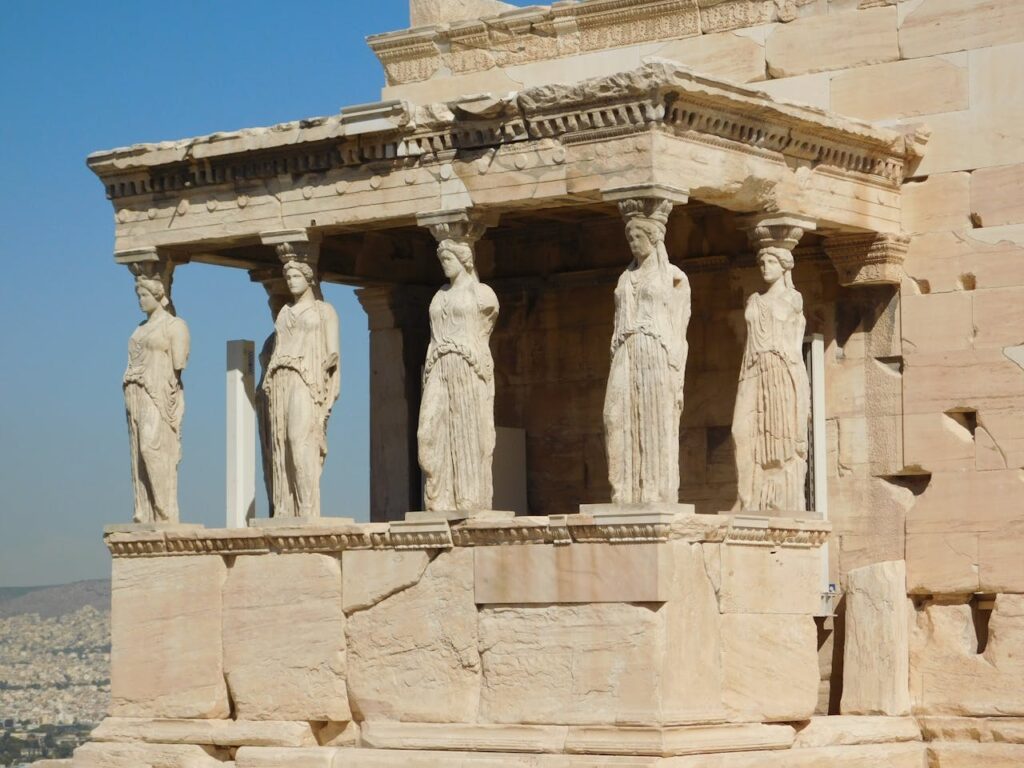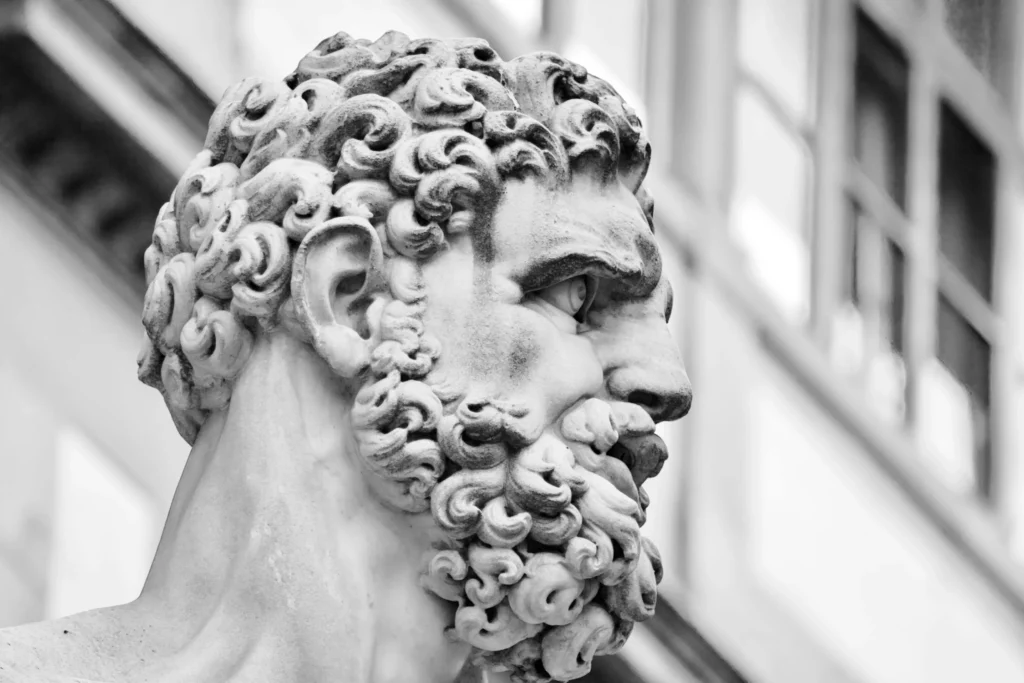Greek mythology is a complex tapestry of gods, heroes, and mortals, with stories that have shaped Western culture and literature for centuries. Central to these myths are the women who, despite often being marginalized or defined by their relationships to men, also embody significant power, agency, and complexity. This comprehensive exploration delves into the multifaceted roles of women in Greek myths, examining their influence, the nature of their power, and their impact on the mythological narrative.

The Spectrum of Female Roles in Greek Myths
Greek mythology presents a diverse array of female figures, from goddesses and nymphs to mortal heroines and tragic figures. These women play crucial roles in shaping the mythological world, reflecting broader themes of power, fate, and human experience.
Goddesses and Divine Figures
The goddesses of Greek mythology are central to many myths, representing various aspects of life, nature, and human experience. Their roles range from powerful and authoritative to nurturing and protective.
Hera: The Queen of the Gods
Hera, the wife and sister of Zeus, is one of the most prominent goddesses in Greek mythology. As the queen of the gods, Hera embodies the archetype of the powerful and sometimes vengeful wife. Her role is marked by both her status as a protector of marriage and her fierce jealousy and retribution against Zeus’s many lovers and illegitimate children.
Hera’s influence extends beyond her role as Zeus’s consort. She plays a significant part in various myths, including the story of Heracles, where her opposition to Heracles’s existence and his subsequent trials highlight her complex nature. Despite her often antagonistic role, Hera’s divine authority and her influence over marriage and family underscore her importance in the mythological pantheon.
Athena: The Goddess of Wisdom and War
Athena, the daughter of Zeus, represents wisdom, strategy, and warfare. Unlike many other female deities, Athena is a virgin goddess who embodies intellect and strategic prowess rather than traditional feminine roles associated with fertility and domesticity.
Athena’s involvement in myths such as the Odyssey and the Iliad showcases her role as a protector and guide for heroes. Her wisdom and strategic skills are crucial in guiding Odysseus on his journey home and in aiding various heroes in their quests. Athena’s role as a warrior goddess who combines intellect with martial skill reflects the multifaceted nature of female power in Greek mythology.
Aphrodite: The Goddess of Love and Beauty
Aphrodite, the goddess of love, beauty, and desire, is one of the most iconic figures in Greek mythology. Her role in myths often revolves around themes of love, attraction, and the influence of beauty on both gods and mortals.
Aphrodite’s various love affairs, including her famous relationships with Ares and Adonis, highlight her power to influence desire and passion. Her role in the Judgment of Paris, where she wins the title of the fairest goddess by promising Helen of Sparta to Paris, demonstrates her impact on both divine and mortal affairs. Aphrodite’s beauty and allure are powerful forces that shape the course of many myths and underscore the significance of love and desire in Greek mythology.
Demeter: The Goddess of Agriculture and Fertility
Demeter, the goddess of agriculture and fertility, represents the nurturing and sustaining aspects of female divinity. Her myth, particularly the story of Persephone, her daughter, is central to understanding the cycles of nature and the concept of seasonal change.
The abduction of Persephone by Hades and Demeter’s subsequent grief and search for her daughter reflect themes of maternal love, loss, and the cyclical nature of life and death. Demeter’s role in this myth highlights her power over the fertility of the earth and her influence on the changing seasons, emphasizing the interconnectedness of life and nature.
Mortal Heroines and Their Contributions
In addition to the divine figures, Greek mythology features a number of mortal heroines whose stories are marked by bravery, intelligence, and complex personalities. These women often challenge traditional gender roles and make significant contributions to their myths.
Cassandra: The Prophetess of Doom
Cassandra, the daughter of Priam, the king of Troy, is a tragic figure whose story exemplifies the theme of prophecy and its consequences. Cursed by Apollo to utter true prophecies that no one would believe, Cassandra’s role in the myth of the Trojan War highlights the tragic nature of her gift.
Cassandra’s warnings about the fall of Troy and the fate of her family go unheeded, reflecting themes of isolation, despair, and the often-unwelcome burden of foresight. Her story underscores the limitations of prophetic knowledge and the complexities of female voices within mythological narratives.
Medea: The Enigmatic Sorceress
Medea, the daughter of King Aeetes of Colchis, is a powerful sorceress and a central figure in the myth of Jason and the Argonauts. Her role in assisting Jason in his quest for the Golden Fleece and her subsequent actions in the tragedy of her own life demonstrate her agency and influence.
Medea’s story is marked by themes of love, betrayal, and revenge. Her relationship with Jason, her role in securing the Golden Fleece, and her drastic actions in the aftermath of his betrayal highlight her complex nature. Medea’s use of magic and her willingness to challenge societal norms reflect the nuanced portrayal of female power in Greek myths.
Atalanta: The Hunter and Warrior
Atalanta is a remarkable figure in Greek mythology known for her skills as a hunter and warrior. Her story is notable for her challenge to suitors to a race, with the stipulation that those who fail will face death. Her strength and independence are central to her character, and her participation in the Calydonian Boar Hunt demonstrates her prowess and heroism.
Atalanta’s myth challenges traditional gender roles and highlights the capabilities of women in roles typically reserved for men. Her athleticism, bravery, and independence reflect a more progressive view of female roles in mythology.
The Complexities of Female Agency in Greek Myths
While the myths of ancient Greece often reflect the patriarchal values of their time, they also provide a nuanced portrayal of female agency and power. The stories of goddesses and heroines reveal the complexities of female influence and the ways in which women navigate and challenge their roles within mythological narratives.
Divine Authority vs. Mortal Constraints
The distinction between divine and mortal female figures in Greek mythology highlights different aspects of female agency. Goddesses often possess immense power and influence, shaping the world and the lives of mortals according to their will. In contrast, mortal women in myths frequently face constraints imposed by societal norms, yet they also demonstrate significant personal agency and impact.
The tension between divine authority and mortal constraints is evident in the stories of characters like Medea and Atalanta, who challenge traditional expectations and assert their own power. These narratives reveal the ways in which female figures navigate and resist the limitations imposed upon them, reflecting broader themes of autonomy and resistance.
The Role of Myth in Shaping Gender Norms
Greek myths play a crucial role in shaping and reflecting societal attitudes toward gender and female roles. While many myths reinforce traditional gender norms, others offer alternative perspectives on female power and influence. The stories of powerful goddesses, heroic heroines, and tragic figures contribute to a complex and multifaceted understanding of women in Greek mythology.
The mythological portrayal of women serves both to reinforce and challenge existing gender norms, providing a rich tapestry of stories that reflect the diverse experiences and roles of women in ancient Greek culture.
The Legacy of Greek Myths and Their Modern Interpretations
Influence on Western Literature and Culture
The myths of ancient Greece have had a profound impact on Western literature and culture, influencing countless works of art, literature, and philosophy. The portrayal of women in these myths has shaped cultural narratives and discussions about gender, power, and identity.
From classical literature to modern adaptations, the stories of Greek goddesses and heroines continue to inspire and resonate with audiences. The themes of female power, agency, and resistance found in these myths are explored in various artistic and literary forms, reflecting their enduring relevance and impact.
Contemporary Perspectives
In contemporary discussions about gender and mythology, the roles of women in Greek myths are reexamined and reinterpreted through modern lenses. Feminist readings of Greek myths offer new insights into the complexities of female representation and agency, highlighting both the limitations and possibilities of these ancient stories.
Modern adaptations and reinterpretations of Greek myths explore the themes of female empowerment and challenge traditional narratives, reflecting ongoing conversations about gender and identity. The mythological portrayal of women continues to serve as a source of inspiration and reflection in contemporary culture.
The Enduring Significance of Women in Greek Myths
The role of women in Greek myths is a rich and multifaceted aspect of ancient mythology, offering valuable insights into the complexities of female power, agency, and influence. From powerful goddesses to heroic heroines and tragic figures, the stories of women in Greek mythology reflect a diverse range of experiences and roles.
Through their actions, struggles, and triumphs, these women challenge and redefine traditional gender norms, contributing to a deeper understanding of human experience and the nature of power. The legacy of Greek myths and their portrayal of women continues to inspire and resonate with contemporary audiences, reflecting the enduring significance of these ancient stories in shaping our cultural and literary landscapes.


